**
Ben Swanson: I saw that you grew up in American Samoa. When did you move there and when did you move back to the mainland United States?**
Domata Peko Sr.:Yeah, I was actually born in LA, and then in sixth grade, that's when I moved to Samoa. And from sixth grade until I graduated high school, I was in Samoa — American Samoa.
BS: What was the difference like when you moved there?
DP:It was super different, because in LA, I was in an LA lifestyle where it's fast-paced and everyone's in a rush [and] there's so much things to do. Going to American Samoa ... the speed limit's 20 miles per hour and the island's only 18 miles long. Our biggest building is three stories. It's going from skyscrapers to Gilligan's Island.

BS: What about the cultural difference?
DP:Well, in Samoa the culture — I thank God that I went to American Samoa when I was younger, because it really helped me learn my culture, and our culture is all about showing love to others, respecting your elders, treating others as you want to be treated and we're big on God — big Christians. We're big believers in God and it really helped me to trust in Him.
BS: In Samoa, what would you do during the summer or on a day off as a kid?
DP:Most of the time we were hanging on the beach. That's what everyone does. We just chill out on the beach, do a little body-boarding, hang out and if we're not in the water swimming and stuff like that, we're fishing. Fishing is huge out in Samoa. People out there, we just live off the land. You don't really need money. You just pick stuff off the trees and live off the land. It's really cool.
BS: How'd you get into football?
DP:Here's what happened: I was playing like junior pee-wee and stuff in LA, then I moved to American Samoa. I just stopped playing. I quit playing football until my senior year of high school, then I started again. My dad started a church and I was really involved in it. That's where I learned to play all these instruments. I have a guitar, I play drums and the bass. I was really into church, but I didn't have much time for football, but my senior year, I just felt something in my heart. I felt something from God saying, 'Hey, man, why don't you just try to play football?' And I went out there and I just felt, like, a God-given talent, like I had something, you know? I just felt like I could play football really well, and that's how I got into football.

BS: And you moved back to America when you were done with high school?
DP:Yeah. I only played one year in high school in America Samoa my senior year. I didn't get a scholarship; I had to go to a junior college. So from Samoa, I went to JuCo [junior college] in California and then I played two years there and that's when I got a full scholarship to Michigan State.
BS: When you were living in Samoa, did you ever come back to the States to visit or anything?
DP:Nah. Once I moved in sixth grade, I was in Samoa.
BS: So what was the experience like when you moved back to the States?
DP:It was different, man. Everything was so fast. It was back to that LA upbeat lifestyle. But coming back, when I came back to LA from Samoa, I came back with a different mindset. I was like, 'Man, I want to play football for a living.' So I really came back with a worker's mentality, that I want to go to JuCo, try to get a scholarship and try to make it to the NFL.
BS: What was it liking transitioning from a JuCo program to a big school like Michigan State?
DP:I love East Lansing. Michigan State was such a blessing. East Lansing loves football — the whole state of Michigan. It's either you're a Wolverines fan or a Spartans fan. It was great playing up there, had a lot of fun out there at State, and me and my wife actually went to Michigan State together, so it was pretty cool.
A photographic look at DE Zach Kerr and NT Domata Peko's first day at UCHealth Training Center. (photos by Ben Swanson)




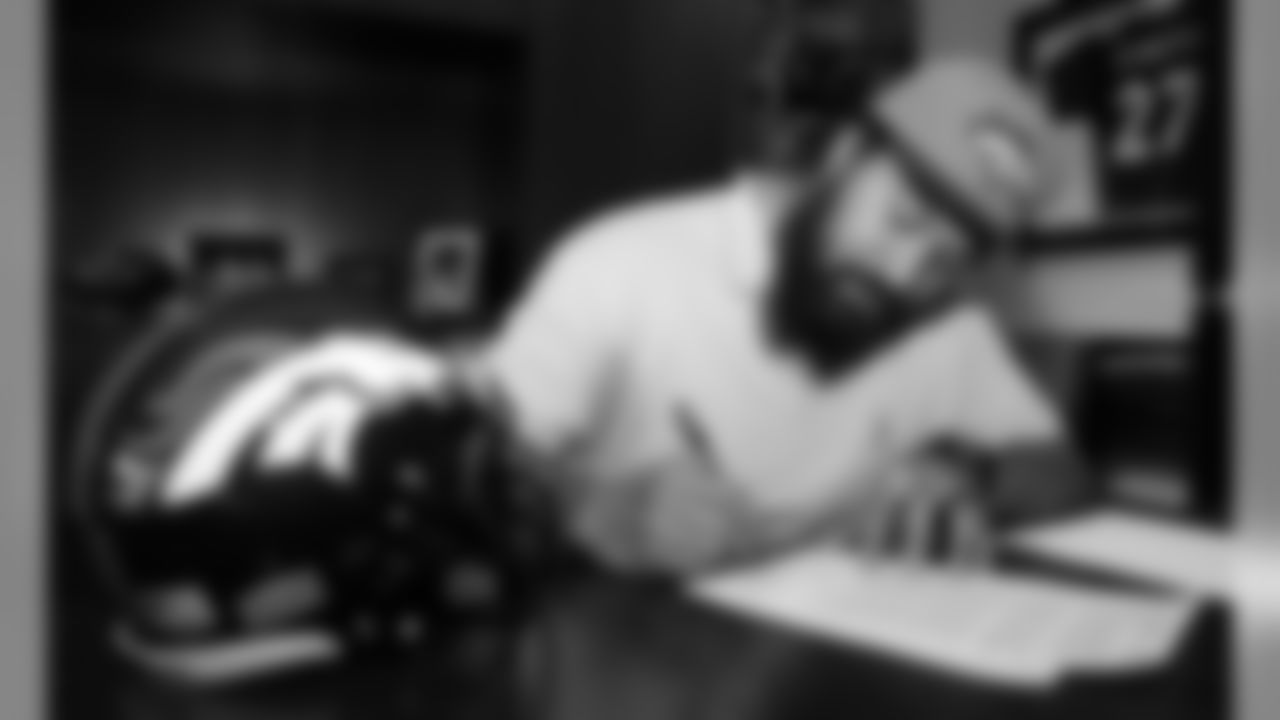





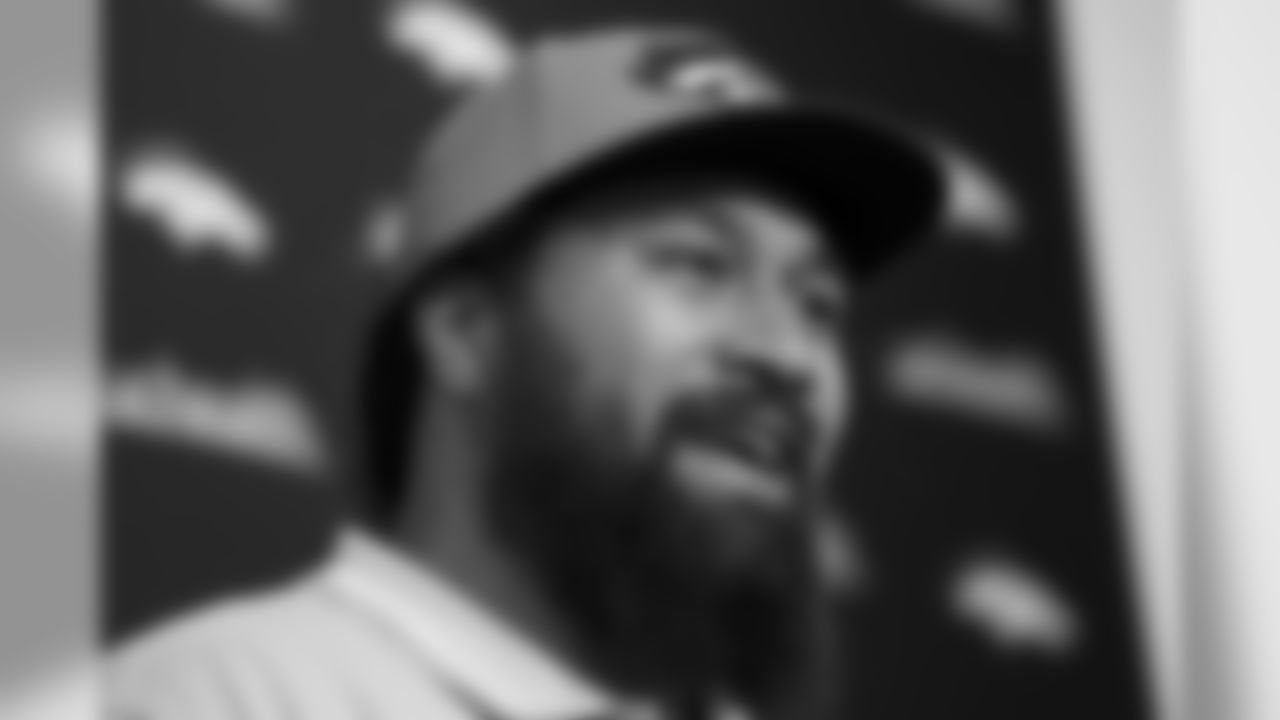

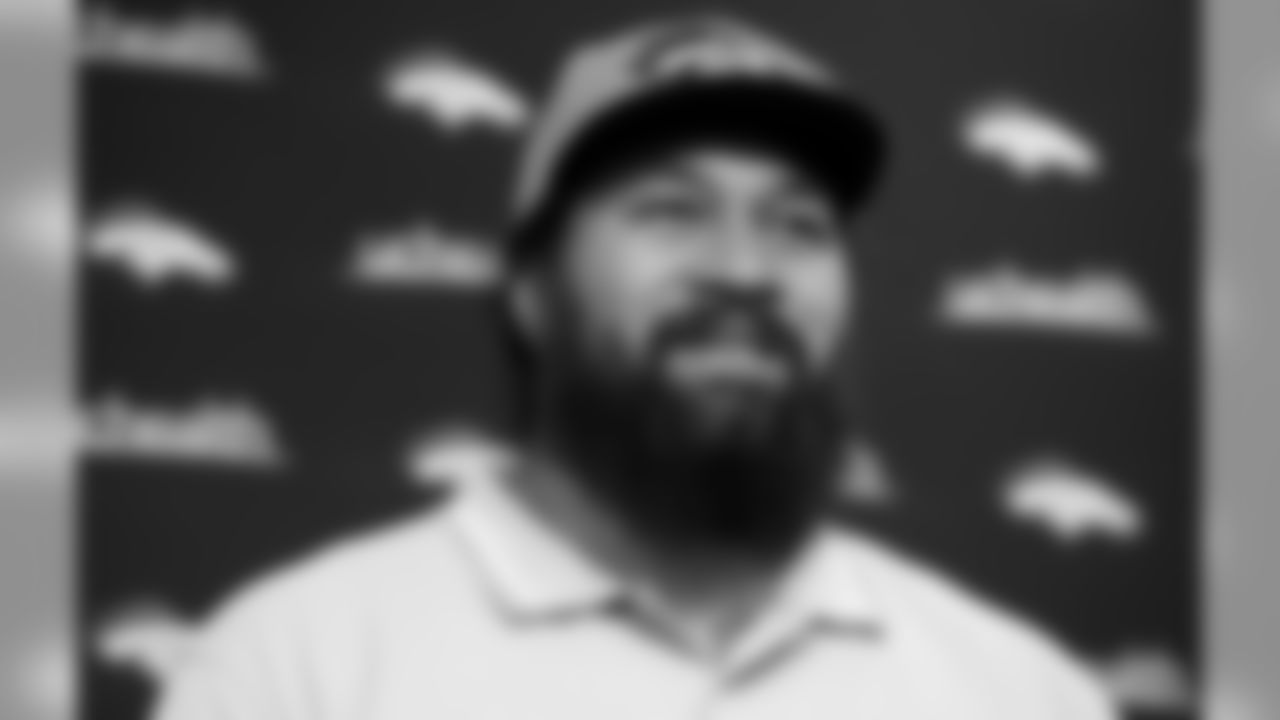
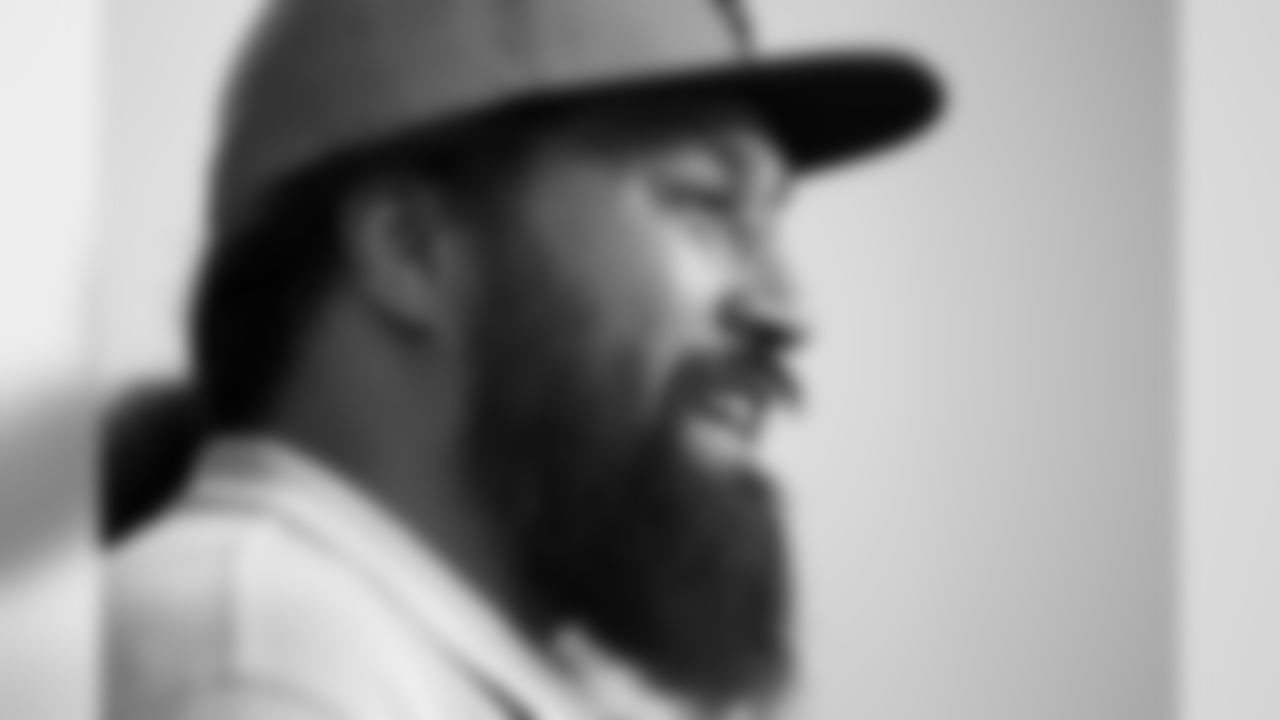

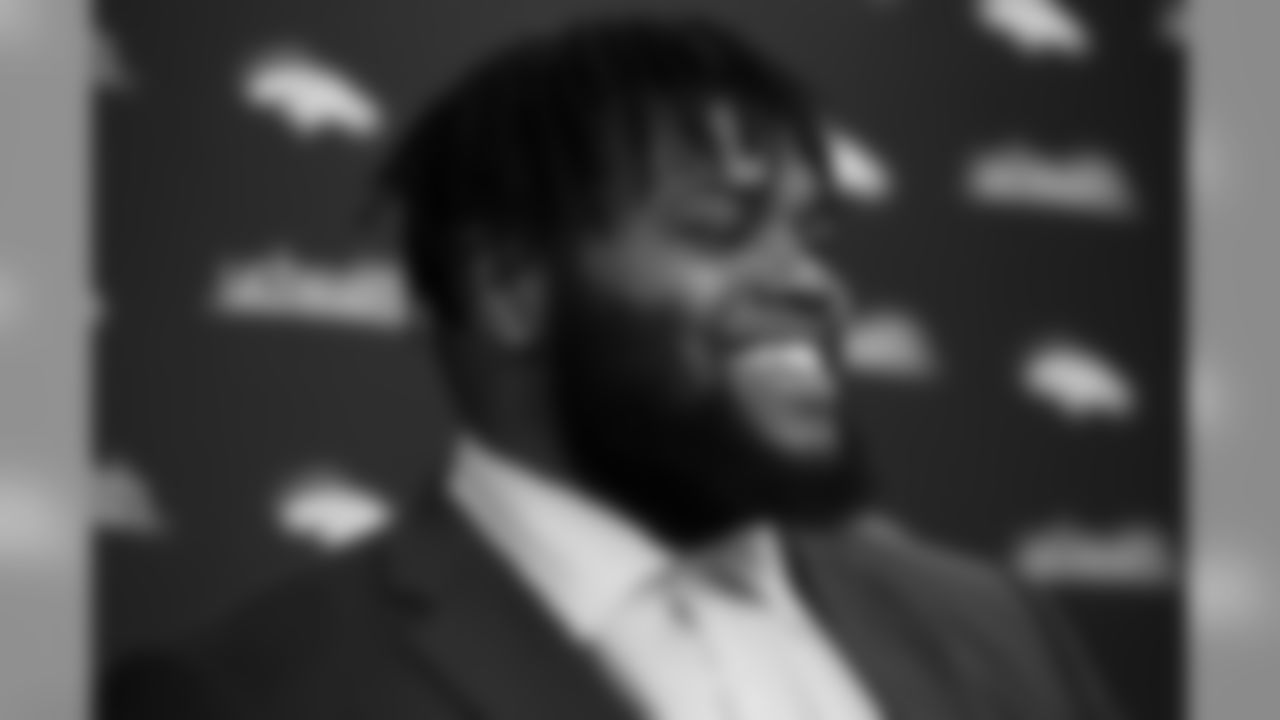




BS: What is the free-agency process like from your perspective as someone who gets an inside look at it?
DP:It was pretty cool because it was my first time actually going into free agency. In prior seasons I just signed extensions. So this was my first time to be a free agent. It was pretty crazy because all it takes is that one phone call from your agent that you get an offer and it's either you're going to take it or not. So you're going to have to move your whole family to a new city, or stuff like that. That was the toughest part for me: the relationships I built in Cincinnati with all my friends I made out there. I was there for 11 years, so a decade of building relationships. That was the toughest part: leaving. But free agency was great. I'm able to come here to Denver, a great organization and have a new chapter of my life. So I'm excited.
BS: So when your agent calls you and says, 'We've got an offer from Denver. John Elway's on the phone,' what goes through your head?
DP:It's pretty cool. My agent would call me and tell me — I got picked up on the second day of free agency, so on the first day — he was like, 'We've got interest from the Jaguars, we've got interest from the 49ers,' stuff like that. And so I'd just tell my wife, 'Hey, babe. We've got interest from these couple teams here.' And we'd just try to figure it out, wherever I wanted to go. So it's kind of up to you, really.

BS: Did you think about the city itself when you were considering it all?
DP:Yeah, that's what I was thinking. When you're thinking about free agency, you think about the city, the team you're going to play for, how good they are, and then also at the end of the day, how much money you're going to make. But for me, it was more about going to a winning team, a team that has a chance to get a ring and somewhere that my kids and my wife and them would be comfortable.
BS: When you looked at Denver and the natural setting, what excited you?
DP:What really excited me was they were only a year out from the [Super] Bowl. And they had a defense that was already lit, already fire. They have one of the best pass rushers in the game and the 'No-Fly Zone' behind you, so I was like, 'Man, the defense is already good. I want to go out there and try to help out and try to fit in.' And that's what brought me here.
BS: Vance was talking about how your role has changed from Cincinnati, which was more two-gapping, to a more aggressive style in Denver.
DP:In Cincinnati, we were kind of more of a reading [defense], like if he was going this way, I go with him that way. If he's going that way, I'm going with him. But here, it's more of an attacking type of style, and I like that. It's the first time I've been in this type of defense, so I'm still learning but [Defensive Line] Coach Bill Kollar really helps you out, coaching you up and getting your technique right. It's been fun so far. I'm excited.

BS: What do you attribute your ability to play 16 games a year for 11 years to?
DP:First of all, I've got to give all of the glory to God, first for giving me strength and keeping me healthy, because without him, I'm nothing. But also just making sure you stay on top of it in the offseason. When we have a month or two off, I'm not off those days. I'm working. I'm trying to keep my body right, I'm trying to eat right. And just throughout the year, I don't give enough credit to my wife. She really takes a lot of care of me. When I get home, she has my game ready, she has ice bags ready for me, she'll get a cold tub ready for me if I ask her. She does a lot for me. So if you have a good woman behind you that takes care of you, that's key. But I give most of my thanks to the man upstairs.
BS: I saw you've been to Red Rocks, which is obviously a Colorado institution that any newcomer has to visit when they move here. What was that experience like?
DP:Dude, I love Red Rocks. That's one of the things that I was excited about moving to Denver [for]. A lot of my friends are in reggae bands — a couple of them are in Revolution [and] SOJA, and they sell out Red Rocks. So they're like, 'Domata, man, now that you're with Denver, you've got to come see us at Red Rocks!' So I've been to two or three shows already out there. Great venue, great for music.













